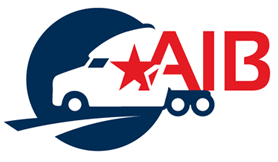Type and Size of Business
The insurance coverage you need as an owner-operator depends on your type of trucking business and its size. When you start small as an owner-operator, your coverage will be pretty basic. Additional coverages will be required as you grow, as there will be more room for error.
Independent Owner-Operator
If you only have one truck, the owner-operator insurance coverages listed above will suffice.
Small Fleet Owner-Operator
As you add on additional trucks and employees, your coverage will need to expand. For instance, workers’ compensation will be crucial in protecting your business in the event of injuries and lawsuits.
Large Fleet Owner-Operator
Large-scale operations require additional coverage. As your fleet grows, the losses may become greater. Large fleet owner-operators can benefit from extra protections such as workers’ compensation, excess liability insurance, and pollution liability insurance.
Type of Cargo
Many owner-operators choose to specialize in a specific type of cargo. Other owner-operators may choose to work with a variety of clients with different cargo types. No matter what type of cargo you carry, it’s important to understand their risks and how coverage may help.
Hazardous Materials
An accident while carrying dangerous materials can have catastrophic consequences. For example, certain chemicals can wreak havoc on the environment if unprotected. If you plan to carry this type of cargo, pollution liability insurance can help when an accident occurs.
Heavy Loads
Oversized loads require extra protection. They can produce more injuries than regular loads, which is why excess liability insurance is needed. Excess liability insurance can protect owner-operators if harm is done to people or property.
Livestock
Owner-operators who transport livestock need to be aware of the additional insurance coverages available to them. If an animal were to be injured in transport, livestock mortality insurance can protect you.
Perishable Goods
Our nation relies on the transport of food to our local grocery stores. However, much of the food that is transported is perishable. These temperature-sensitive items may spoil on their way to the shelves, which can be costly. When an owner-operator carries perishable goods, they need cargo insurance in case of spoilage.
State Regulations
At American Insurance Brokers, we help owner-operators across the South understand their state’s commercial trucking regulations. Below are a few things to keep in mind when navigating your state’s requirements.
Minimum Liability Limits
Owner-operators in certain states are required to carry a certain amount of coverage. These amounts can range from $500,000 to $1 million, depending on the state in which you operate.
Workers’ Compensation Insurance
Owner-operators who have employees may be required by their state to carry workers’ compensation insurance. Each state has its requirements to protect employees in the event of injury to themselves and their livelihood.
Federal Regulations
The Federal Motor Carrier Safety Administration (FMCSA) has a special interest in improving the safety of commercial trucking nationally. They are also responsible for giving for-hire truckers authority to operate. For owner-operators, this means you are required to follow their guidance.
FMCSA has special requirements as it relates to insurance. They require liability insurance minimums to cover any harm resulting from trucking accidents. By working with American Insurance Brokers, you’ll have a team that will help you understand these minimums.





